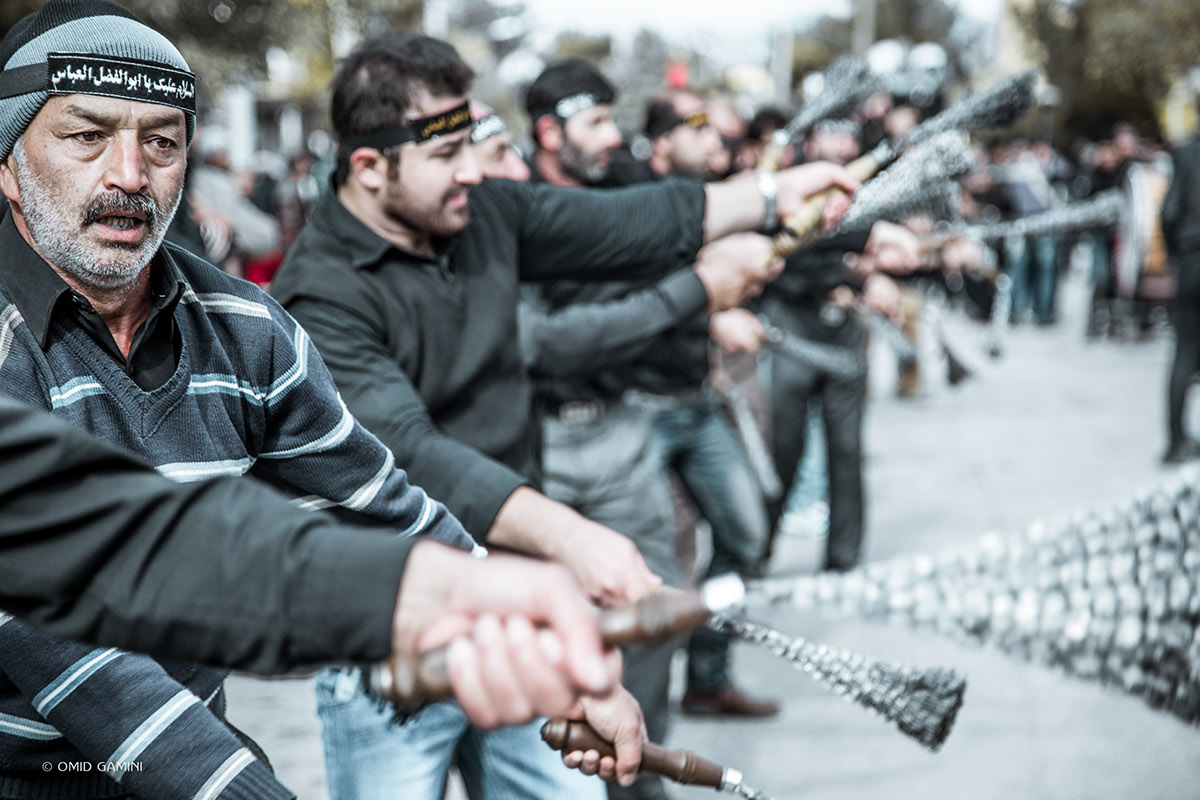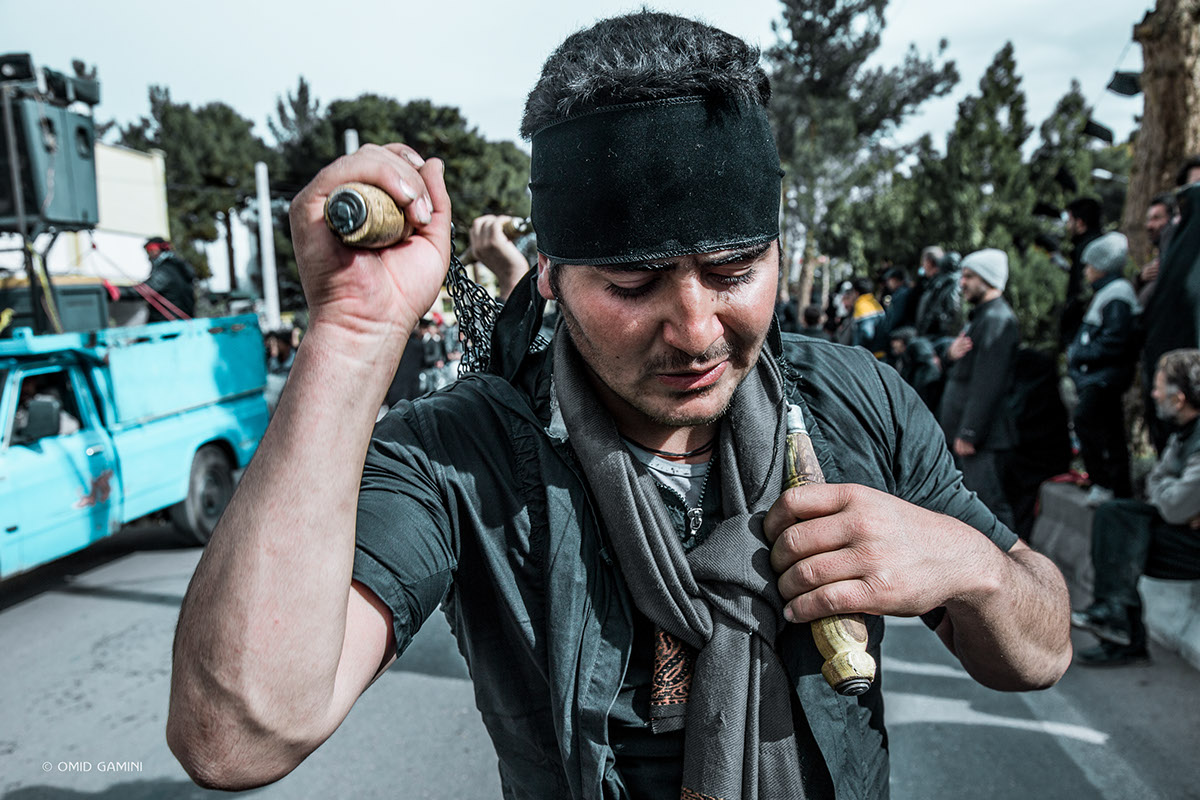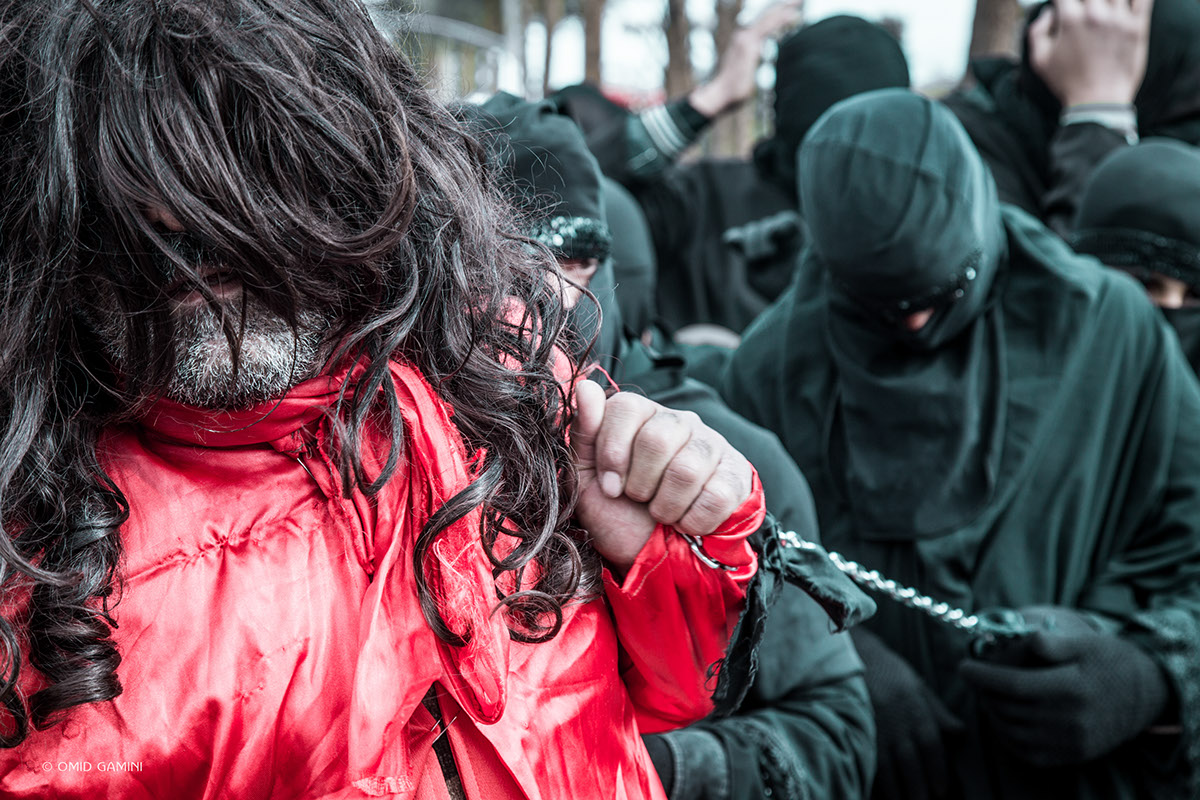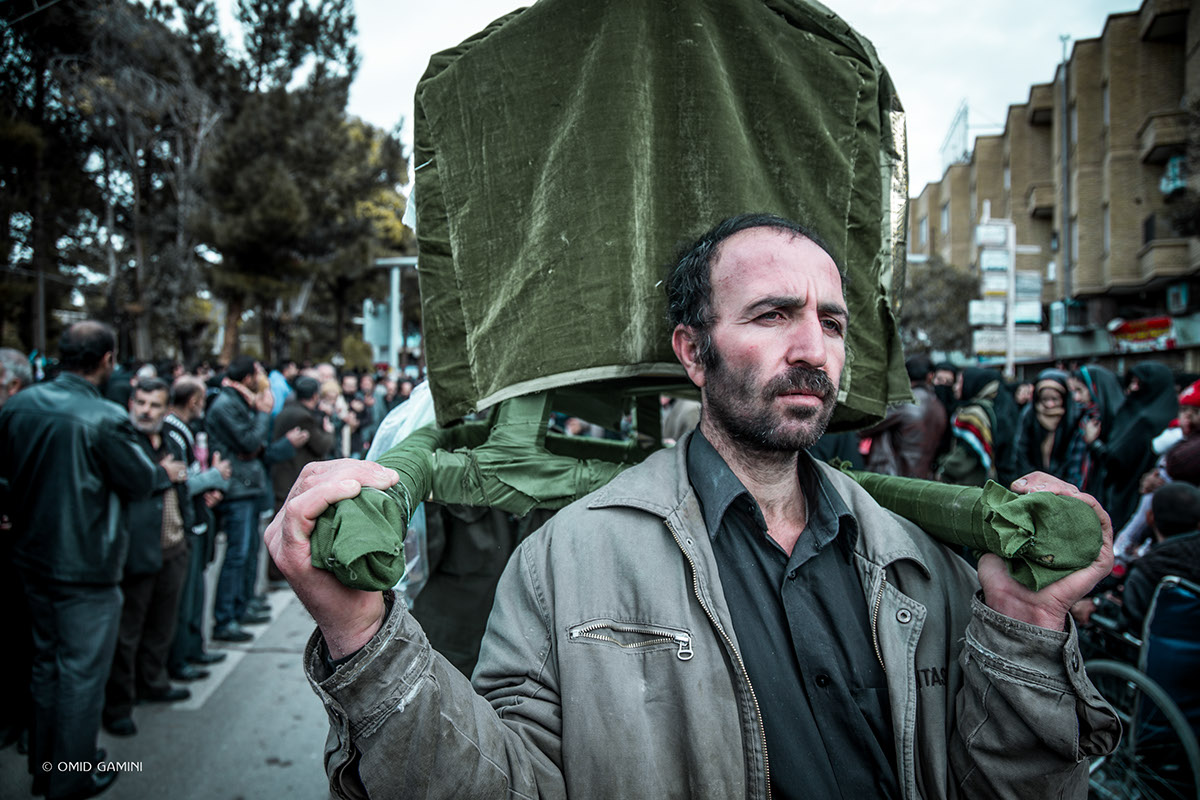It is commemorated by Shi'a Muslims as a day of mourning for the martyrdom of Husayn ibn Ali, the grandson of Muhammad at the Battle of Karbala on 10 Muharram in the year 61 AH ( in AHt: October 10, 680 CE). The massacre of Husayn with small group of his companions and family members had great impact on the religious conscience of Muslims. Especially Shia Muslims have ever remembered it with sorrow and passion.[5]Mourning for Husayn and his companions began almost immediately after the Battle of Karbala, by his survivor relatives and supporters. Popular elegies were made by poets to commemorate Battle of Karbala duringUmayyads and Abbasids era. The earliest public mourning rituals happened in 963 CE during Buyid dynasty.[6] Nowadays, in some countries such as Afghanistan,[7] Iran,[8] Iraq,[9] Lebanon,[10] Bahrain,[11] Turkey[12] andPakistan,[13] the Commemoration of Husayn ibn Ali has become a national holiday and most ethnic and religious communities participate in it.[14][15] Even in a predominantly Hindu majority but secular country like India, Ashura (10th day in the month of Muharram) is a public holiday due to the presence of a significant Indian Shia Muslim population (2-3% of total population, 20-25% of Indian Muslim population).
This photos has been taken in Iran - Damghan city (A historical city) Nov.2014
In April 680, Yazid I succeeded his father Muawiyah as the new caliph. Yazid immediately instructed the governor of Medina to compel Hussayn and few other prominent figures to pledge their allegiance(Bay'ah).[5]Husayn, however, refrained from it believing that Yazid was openly going against the teachings of Islam in public and changing the sunnah of Muhammad.[17][18] He, therefore, accompanied by his household, his sons, brothers, and the sons of Hasan left Medina to seek asylum in Mecca.[5]
On the other hand, the people in Kufa who were informed about Muawiyah 's death, sent letters urging Husayn to join them and pledge to support him against Umayyads. Husayn wrote back to them saying that he would send his cousin Muslim ibn Aqeel to report to him on the situation. If he found them united as their letters indicated he would speedily join them, because Imam should act in accordance with the Qoran, uphold justice, proclaim the truth, and dedicate himself to the cause of God. The mission of Moslem was initially successful and according to reports 18,000 men pledged their allegiance. But situation changed radically when Yazid appointed Ubayd Allah ibn Ziyad as the new governor of Kufah, ordering him to deal severely with Ibn Aqeel. Before news of the adverse turn of events arrived in Mecca, Husayn set out for Kufa.[5]
On the way, Husayn found that his messenger, Muslim ibn Aqeel, was killed in Kufa. He broke the news to his supporters and informed them that people had deserted him. Then, he encouraged anyone who so wished, to leave freely without guilt. Most of those who had joined him at various stages on the way from Mecca now left him. Later, Husayn encountered with the army of Ubaydullah ibn Ziyad in his path towards Kufa. Husayn addressed the Kufans army, reminding them that they had invited him to come because they were without an Imam. He told them that he intended to proceed to Kufa with their support, but if they were now opposed to his coming, he would return to where he had come from. However, the army urged him to choose another way. Thus, he turned to left and reached Karbala, where the army forced him not to go further and stop at a location that was without water.[5]
Umar ibn Sa'ad, the head of Kufan army, sent a messenger to Husayn to inquire about the purpose of his coming to Iraq. Husayn answered again that he had responded to the invitation of the people of Kufa but was ready to leave if they now disliked his presence. When Umar ibn Sa'ad, the head of Kufan army, reported it back to Ubaydullah ibn Ziyad, the governor instructed him to offer Ḥusayn and his supporters the opportunity to swear allegiance to Yazid. He also ordered Umar ibn Sa'ad to cut off HUsayn and his followers from access to the water of the Euphrates
This photos has been taken in Iran - Damghan city (A historical city) Nov.2014








